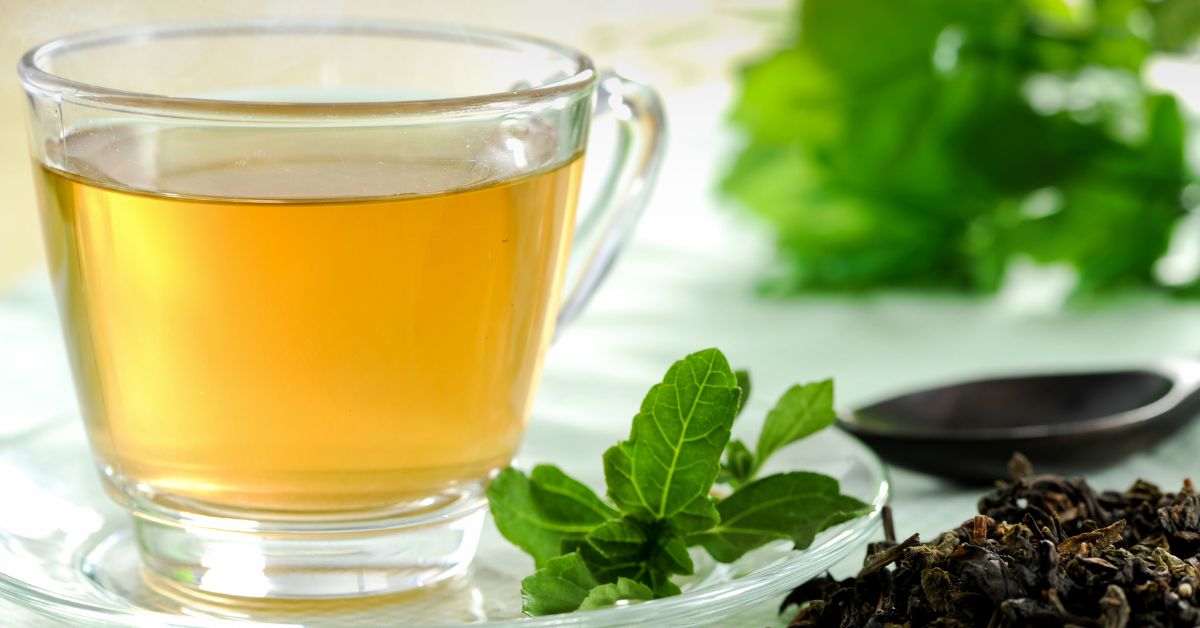All of us have experienced bloating at one time or another. Your stomach may feel stuffed up, tight or uncomfortable after having a large meal. You discovered that your stomach looks bigger, and you could not fit into your tight clothes.
The most telling sign of stomach bloating is when your abdomen feels swollen, hard or painful after eating.
Bloating happens because your gastrointestinal tract is filled with air or gas. You’ll feel “gassy” and may have excessive breaking of wind, frequent burping and abdominal rumblings.
How Can You Reduce Bloating Naturally?
Having stomach bloat causes discomfort and may even be painful. When it happens, you may be in great discomfort and wish to treat it quickly.
While over-the-counter medications or laxatives may help, adopting preventive measures are more effective to lower the incidences of bloating in the long term.
Using natural remedies helps you to regain your health instead of subjecting it to additional stress. It resets your body to its balanced state and improves your overall well-being.
Check out these 5 natural and easy ways to help reduce bloating.
I. Notice Food Intolerances in Your Diet
Bloating is often caused by digestive or gastrointestinal stress. Your body may be intolerant to or having difficulty digesting certain kinds of food or food additives. This causes excessive gas production and other symptoms.
Some examples of foods that may contribute to bloating are high-sodium processed foods, low-sugar or sugar-free alternatives, dairy (milk or cheese), legumes (beans or lentils) and deep-fried foods.
It’s advisable to keep a food diary and write down what you eat at every meal. You may start noticing certain food allergies or intolerances to dairy, wheat or gluten, fructose, eggs and so on.
Once you’ve recognised what causes excessive air to build up in your stomach, you’ll soon learn to avoid those foods to reduce bloating.
The best way to reduce bloating is to eat a healthy, balanced diet that includes sufficient fibre intake from fruits and vegetables. Fibre will help to improve your bowel movements, thus preventing constipation which contributes to abdominal pain and bloating.
II. Avoid Carbonated Drinks and Chewing Gum

You’re likely to feel a bit bloated after taking carbonated drinks or soda. That’s because the gas in those drinks enter your digestive tract and cause your stomach to temporarily inflate or bloat up.
If you want to reduce bloating, it’s best to minimise your consumption of carbonated drinks as well as processed foods labeled with “sugar-free” or “low sugar”.
These processed foods may contain food sweeteners such as sugar alcohols, a type of sweet carbohydrate.
Although they’re generally considered to be safe alternatives to sugar, sugar alcohols may cause digestive problems. Being difficult to digest, the sugar alcohols may trigger bloating or stomach upset in sensitive individuals.
Look out for sugar alcohols which are labeled on food packaging as xylitol, sorbitol, maltitol and erythritol.
They are most commonly found in chewing gum, diet soda and other processed foods with “low sugar” or “sugar free” labels. Cut down on these foods and observe whether your bloating reduces.
III. Eat Small Meals and Consume Them Slowly

People with busy lifestyles or a hectic schedule may eat irregular meals or skip meals altogether.
When it’s time for a meal, they may be tempted to eat a larger portion or gobble down the food hastily. Some people eat on the run because they lack time to sit down for a proper meal.
Improper eating may lead to a tendency to feel gassy later. You may have eaten too much and end up feeling stuffed. While eating fast, you may have swallowed gulps of air into your stomach. Likewise, drinking with a straw could also introduce excess air into your digestive system.
To counter bloating, try eating smaller meals and slowing down the pace. Chew your food better as much as you can (experts recommend up to 30 times) to improve digestion. Your saliva contains important digestive enzymes which will help your system to digest the food well.
Having a well-digested meal would lower the frequency of bloating, lessen acid reflux and prevent constipation.
IV. Drink Natural Herbs and Teas

Many natural herbs such as ginger, lemongrass, fennel and peppermint are able to improve digestion, thereby lessening the chances of bloating.
Ginger naturally stimulates the body’s digestive enzymes while also protecting and healing the gut. It is used in many ancient remedies to reduce gas, bloating and cramps.
In Chinese medicine, lemongrass is often used to heal stomach problems like bloating, constipation or indigestion. It contains a component called citral which is both anti-inflammatory and helps to digest food better.
Peppermint relaxes the intestinal muscles which helps digestion, while fennel seeds have nutrients which could soothe gas attacks, bloating and constipation.
There are many ways to consume these herbs.
You may go the natural way like using the ingredients in your cooking. To consume them directly, you may add grated ginger or peppermint leaves to hot water or a beverage.
A convenient way to absorb these herbs is by drinking herbal teas or tea infusions. Rhymba HillsⓇ Tea products contain both lemongrass and ginger which aid digestion.
Lemongrass and Bentong ginger are the main ingredients of Rhymba HillsⓇ Reefresh and Rhymba HillsⓇ Reevitalise (please click on the links to enjoy your cuppa!). Just pop the tea sachets into hot water and enjoy their calming digestive effects.
Rhymba Hills® Reevitalise Tea
Digestion RM16.50 – RM32.30Price range: RM16.50 through RM32.30Rated 0 out of 5Rhymba Hills® Reefresh Tea
Digestion RM17.90 – RM35.99Price range: RM17.90 through RM35.99Rated 0 out of 5
V. Practise Self-care to Reduce Stress Levels

If you could not find other causes for your abdominal bloating, the answer could lie in your lifestyle and stress levels.
Research has recently shown that our body has a “second brain” in our digestive tract called the enteric nervous system. This network of nerves and neurons are influenced by signals from the brain.
Anxiety or stress triggers the body’s “fight or flight” response in the central nervous system, preparing you for action. The enteric nervous system, however, slows down or stops digestion in order to give your body the excess energy to act quickly.
People with chronic stress levels may have an inefficient digestive function which causes digestive issues.
If you belong to this category, it is time to practise more self-care and relaxation to reduce your stress levels.

Consider taking up meditation or doing more exercise to calm your nervous energy. Balance your lifestyle with regular sleeping and eating habits. Adopt hobbies or practices which help you relax such as making art and craft, reading, singing, dancing, gardening or journalling.
Seek help if you need professional assistance to deal with your chronic anxiety or stress levels.
It’s not selfish to care for yourself and invest time in self-care. When you’re well and balanced, you are able to function better and perform in your role as a member of your family, community or organisation.
= = =
References:
https://www.webmd.com/diet/features/10-flat-belly-tips#2
https://www.womenshealthmag.com/weight-loss/g23692194/how-to-reduce-bloating/
https://www.healthline.com/nutrition/11-proven-ways-to-reduce-bloating#TOC_TITLE_HDR_2
https://www.medicalnewstoday.com/articles/322525#quick-tips-to-get-rid-of-bloating
https://www.hopkinsmedicine.org/health/wellness-and-prevention/bloating-causes-and-prevention-tips
https://www.healthline.com/health/food-nutrition/lemongrass-tea#pms
https://my.clevelandclinic.org/health/treatments/16358-gut-brain-connection




